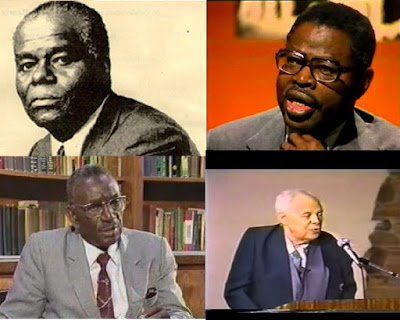Don't
teach maths and science in English
Students Taught in Their Native Language Rank High in Sciences and Maths- a Research in Philippines
English may be the language of science, but students learn
better and contribute more when taught in their local tongue, says Giovanni
Tapang.
What language should
be used to teach science and mathematics? It's a question that often
provokes disagreement among educators in charge of implementing the standard
curriculum of many non-English speaking countries.
For some, it's a
practical matter of meeting current employment demands with flexible education
policies and teaching practices. But others feel teaching needs a clear
national objective for educational development.
English for commerce, not education
The point is often
made that English is the lingua franca of both commerce and science. In our
globalised age, fluency in English is seen to enhance competitiveness, and is
certainly essential for those who come from developing countries, where most
industries are owned or run by foreign (usually English-speaking) entities.
The ability to write
and speak well in English is usually one of the most important criteria set by
employers.
But critics of English
as medium of instruction say that such move is detrimental to both the quality
of the learning process and the development of critical thinking. This is
because most school children come from homes in which their mother tongue is
the predominant language, resulting to their early social marginalization.
Some nations have
taken a mixed approach. In the Philippines, science and maths are taught in
English, while other subjects are taught in Filipino. The Philippines has more
than 120 other languages, and the Department of Education also allows local
languages for the teaching of most subjects. This is because children naturally
use the language they grow up with to understand the world around them.
The education
department also believes that teaching in the local language will encourage
children to stay in school rather than drop out, which is a big problem in the
Philippines, where only 14 out of every 100 children who enrol in grade 1 will
graduate with a college degree.
Studies conducted by
organisations such as Unesco and the World Bank, as well as by local
institutions, show that pupils learn faster, better and with enthusiasm when
taught in their vernacular language.
In other countries,
debateson the language for science and maths have led to changes in policy. In
Malaysia, for example, there have been fierce debates between the proponents of
Bahasa Malaysia and English. In 2003, Malaysia re-adopted English, but in 2009
decided to return to Bahasa from this year.
Maths and science are not exceptions
Yet despite the
prominence of English as the language of instruction, it is not a requisite for
achieving excellence in maths and science. Countries that rank high in maths
and science tests in the Trends in International Mathematics and Science Study
(TIMSS, carried out by the International Association for the Evaluation of
Educational Achievement), all have basic instruction in their local tongue
(with the exception of Singapore).
TIMSS is an important
benchmark for comparing standards in maths and science around the world; the
tests have been administered every four years since 1995.
Eighth grade students
in Hong Kong, Japan, South Korea and Taiwan have – together with Singapore --
consistently ranked high in maths and science tests. These countries teach
their basic education (including science and maths) in their local language,
with English integrated only as a part of a compulsory curriculum.
Ironically, among the
tail-enders are the English-speaking United States and the Philippines.
The challenge is worthwhile
Teaching all subjects
in the local language not only enhances understanding for learners, but also
paves the way for more potential for national development.
Teaching science and
maths in the vernacular is not without its challenges. Instruction is an
activity that involves the personal experiences of teachers and students —
cultural and linguistic factors need to be taken into account to help students
make sense of new information.
There is also a need
to translate important journals, books and other educational materials.
Unfortunately, most textbooks in the developing world are untranslated English
imports. Apart from the language barrier, they often use examples that are
valid only in the United States or the United Kingdom.
The training of
teachers, and their teaching materials, must be in the local language as well.
We don't need to invent new words for scientific terms; existing foreign terms
that are used by convention can be used. But the rest of the translation still
requires a lot of work, and an investment that education ministries are usually
not willing to make.
It is important to
note that the prominence of English is a product of history, much like the use
of Latin from medieval times. Scholars, then and now, master each other's work
in books and publications written in a common language. Just as English
supplanted Latin and other European languages, we may yet see achange to
another language.
But history also shows
us many examples where the dominance of a particular language for scholarship
does not preclude the publishing of excellent research in a native language.
Teaching science and mathematics in the vernacular is no barrier to science
excellence, and would result in better understanding of the world around us.
Giovanni Tapang is an associate professor at the National
Institute of Physics, University of the Philippines.
Source:
Science dev
Africason is a die-hard believer in Africa.
Twitter: @african_school
Website: www.africason.com
Email: info(AT)africason.com
Find my songs on iTunes, artiste name: Africason









Comments
Post a Comment